Best of #econtwitter - Week of October 17, 2021 [1/2]
Oct 18, 2021
Welcome readers old and new to this week’s edition of Best of Econtwitter. Thanks to those sharing suggestions, over email or on Twitter @just_economics.
This is part one of two, this week. Part two is here.
Paper summary threads

Alexander Berger@albrgr
I've been waiting for someone to write this paper: (new econ Nobel!) David Card, @rothstein_jesse and Moises Yi use admin data to better estimate big productivity gains from moving to higher-wage metros. But housing costs more than offset average gains :( www2.census.gov/ces/wp/2021/CE…
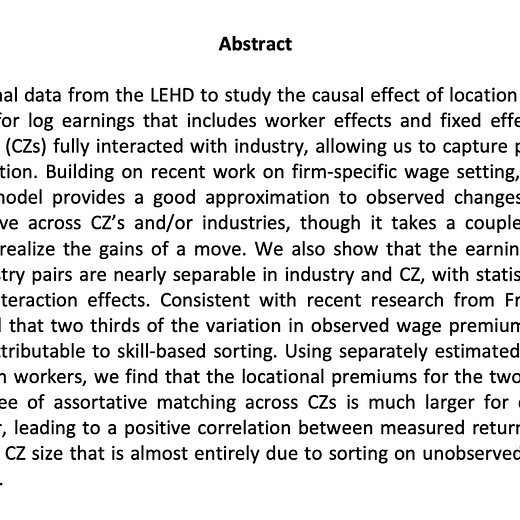
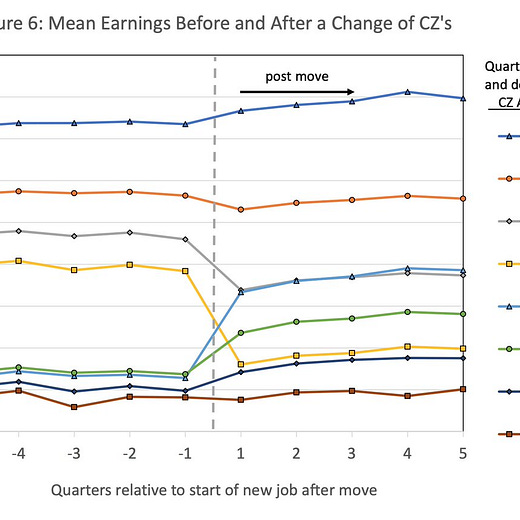
3:57 PM · Oct 13, 2021
126 Reposts · 518 Likes

Florian Ederer@florianederer
Economics papers with first authors earlier in the alphabet tend to be of lower quality because these authors receive more credit and have an incentive to overcollaborate.

Keyvan Vakili @keyvanv
@florentaT @MBikard Oh, and here is the link to the paper in OrgSci: https://t.co/Sxo4t9ojX3 https://t.co/f0sjFw4kcd
11:10 AM · Oct 12, 2021
31 Reposts · 250 Likes

Special Puppy🧦🐵@SpecialPuppy1
New Chart just dropped


QJE @QJEHarvard
Recently accepted by #QJE, “Brahmin Left versus Merchant Right: Changing Political Cleavages in 21 Western Democracies, 1948-2020,” by Gethin (@amorygethin), Martínez-Toledano (@cmtneztt), and Piketty (@PikettyLeMonde): https://t.co/RAHBYdgG8b
9:06 PM · Oct 11, 2021
44 Reposts · 179 Likes

Matt Grossmann@MattGrossmann
Across Western democracies, the education divide slowly reversed from higher education voters favoring parties on the ideological right in the 1960s to favoring parties on the ideological left by 2020, easing but not reversing the income divide
academic.oup.com/qje/advance-ar…

5:30 PM · Oct 12, 2021
42 Reposts · 76 Likes
^comment (as always, links are not endorsements)

Robert VerBruggen@RAVerBruggen
The psychosocial effects of the Flint water crisis appear to have been far bigger than the lead effects, at least in some short term data. nber.org/papers/w29341#…

11:35 PM · Oct 11, 2021
43 Reposts · 166 Likes

Saksham Khosla@khoslasaksham
How do distortions in land markets impact agricultural productivity in India?
- rental activity has significant positive effects on agri productivity
- more efficient land reallocation can increase productivity by 50% in highly distorted states
nber.org/system/files/w…
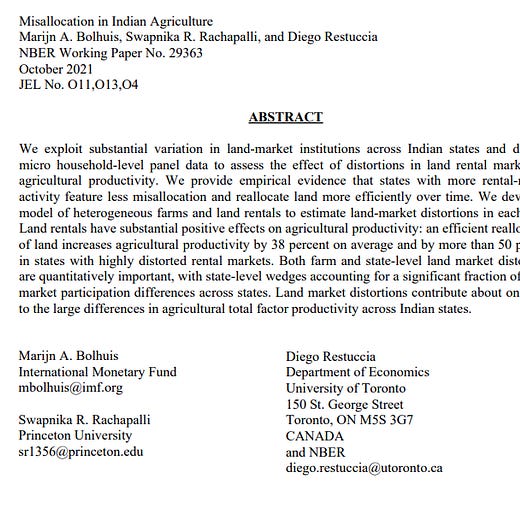
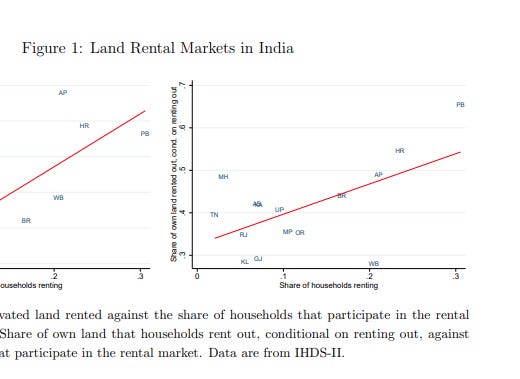
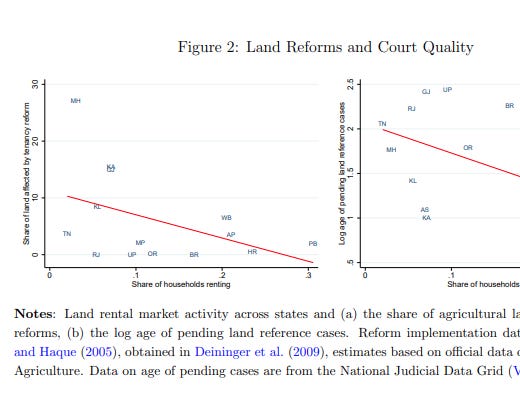
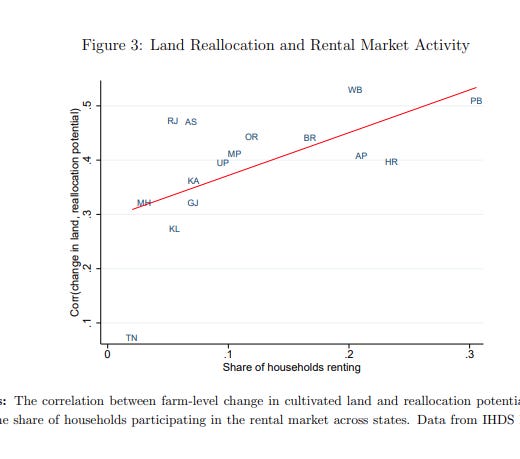
5:02 AM · Oct 13, 2021
3 Reposts · 8 Likes

Alix Gould-Werth@alixgouldwerth
🚨🚨NEW PAPER ALERT🚨🚨
@PNASNews just published the first-ever quasi-experimental evaluation of a stable scheduling law, authored by the #dreamteam @Shift_HKS.
Curious about the results? (1/12)
1:35 PM · Oct 12, 2021
25 Reposts · 60 Likes

Yiqin Fu@yiqinfu
Spotify publishes the coolest research!
Facts from this paper: ojs.aaai.org/index.php/ICWS…
1) Everyone listens to music released in their adolescent years.
Also from nytimes.com/2018/02/10/opi… we know that the peak influence age for women is 13 and men 14.

11:54 PM · Oct 12, 2021
23 Reposts · 65 Likes
Interesting discussions

Lionel Page@page_eco
There has been a recent debate on Twitter on the notion of “utility” in economics. I’ll try to give some perspective to help understand the disagreements. 🧵

Itai Sher @itaisher
Several people have pointed out that the “canonical” or “official” meaning of utility these days is the one in Paul’s tweet @ShengwuLi
However utility has been interpreted by economists to measure different things: choice, preferences satisfaction, happiness, well-being. https://t.co/9VCqydKdIh
1:45 PM · Oct 14, 2021
31 Reposts · 115 Likes

Shengwu Li@ShengwuLi
If it’s hard for grad students to transition from coursework to idea generation, what can we do about it?
One idea: faculty could hand students a starter project.
That is, a well-formed open question that can likely be answered via standard methods.🧵
10:50 PM · Oct 9, 2021
70 Reposts · 646 Likes

Eva Vivalt@evavivalt
Some people need ideas, some people need more structured advice. But either way starter projects sound good.
Regarding "ideas": 1/n

Shengwu Li @ShengwuLi
If it’s hard for grad students to transition from coursework to idea generation, what can we do about it?
One idea: faculty could hand students a starter project.
That is, a well-formed open question that can likely be answered via standard methods.🧵
4:13 PM · Oct 10, 2021
1 Repost · 9 Likes

Kirby Nielsen@KirbyKNielsen
Evergreen advice for JMCs’ websites!

Jennifer Doleac @jenniferdoleac
It's about time for me to start tweeting "women on the econ job market" again. 🎉
JMCs: A few requests, as you finalize your websites:
4:16 AM · Oct 12, 2021
3 Likes

Chris Blattman@cblatts
'Tis the season for grad school recommendation letters. I decided to update my advice post on the topic:
chrisblattman.com/letters/
A few tips in brief:
chrisblattman.com
Recommendation letters - Chris Blattman

6:32 PM · Oct 13, 2021
17 Reposts · 87 Likes

Sebastian Łucek@s_lucek
Once, in an applied econometrics seminar at Brown, @ProfEmilyOster handed the whole class a 40-page NBER working paper, set a 10min timer, and quizzed us on it in front of the class when the timer was up. I think I learned more useful skills in those 10min than in entire classes!
4:33 PM · Oct 12, 2021
3 Reposts · 94 Likes

Jonathan Mummolo@jonmummolo
Seems like a great day for an IV thread!
Here's a simulated case inspired by Angrist, Imbens & Rubin (1996) showing how our new automatic causal bounding approach can alert users when a key assumption (e.g. "no defiers") is violated. 🧵

Jonathan Mummolo @jonmummolo
Our new working paper: tell the computer what you know (and don't know!) about a causal question w/ discrete data → automatically get most precise possible answer (bounds, or a point estimate). Joint w/ @guilhermejd1 @nsfinkelstein @dean_c_knox Shpitser.🧵https://t.co/9FY4HKCp32 https://t.co/5s0KTDqHSl
12:35 PM · Oct 11, 2021
14 Reposts · 52 Likes

Todd Jones 🦊@toddrjones
Where did the faculty (right) of the top 96 USNWR-ranked economics departments get their PhDs (middle) and Bachelor's (left)?

2:41 PM · Oct 15, 2021
44 Reposts · 352 Likes

kevin starr@mulagostarr
Would it somehow degrade the whole enterprise to give us a a plain-English summary as part of papers like this (from the authors - not a secondhand interpretation by a journalist, however useful that might be)? It seems like it would be a useful exercise for all concerned. 10/n
10:16 AM · Oct 13, 2021
2 Reposts · 19 Likes

Ezra Zuckerman Sivan@ewzucker
Ok so here’s one of my top 2 favorite job talk stories.
(the other one involves the male member making an unscheduled appearance- I’ll spare you that one)
It was about 15 years ago…

Ezra Zuckerman Sivan @ewzucker
No! Job talks are the scene for some of my best academic stories! https://t.co/PKP4lrKgMd
8:24 PM · Oct 15, 2021
4 Reposts · 33 Likes

